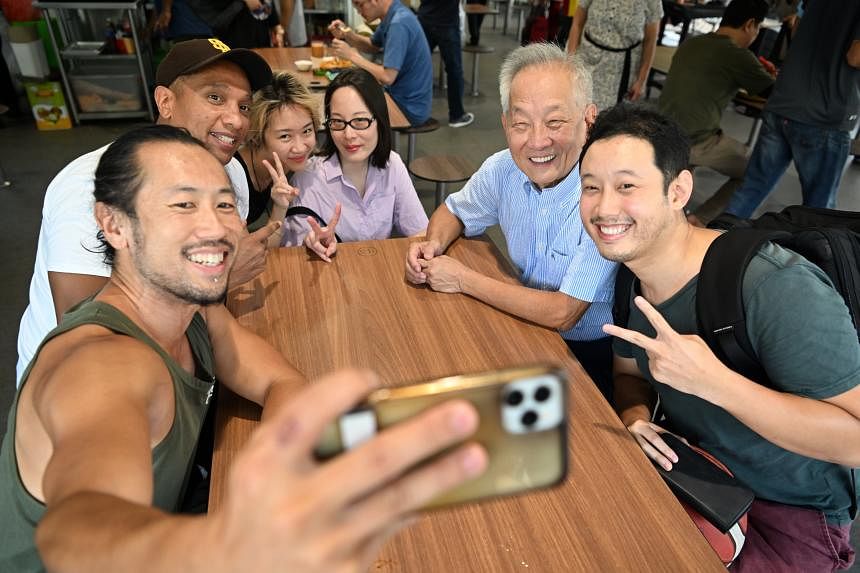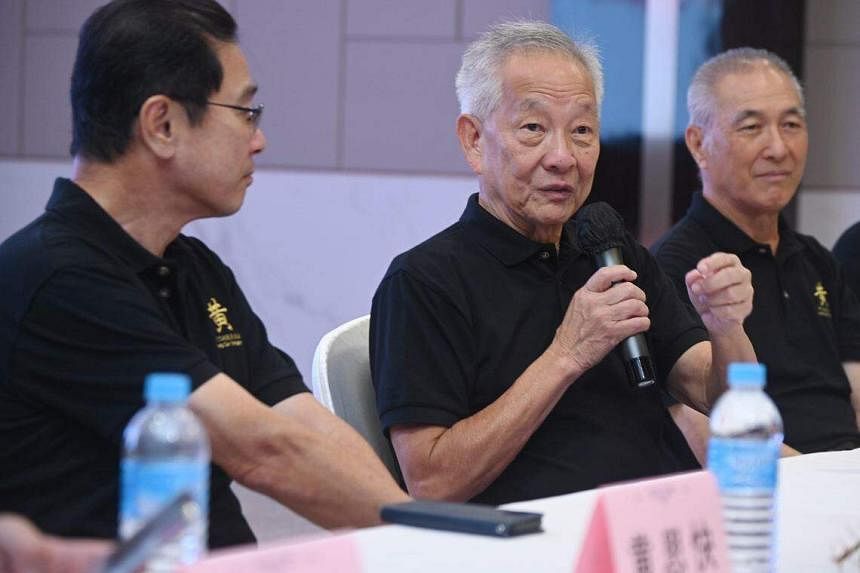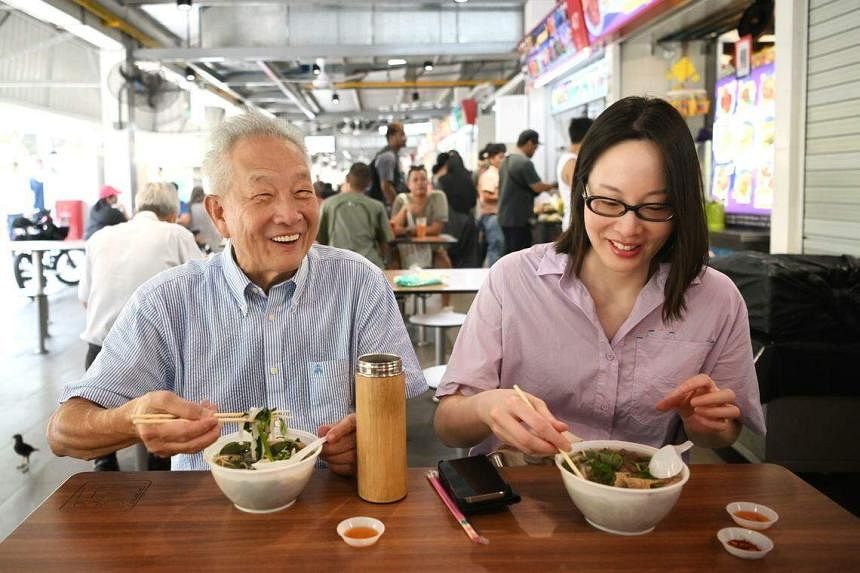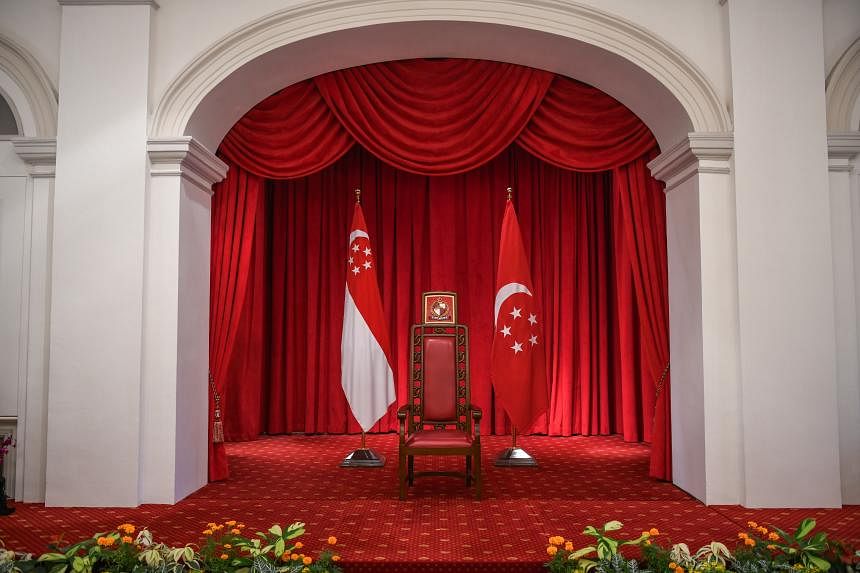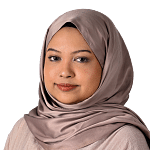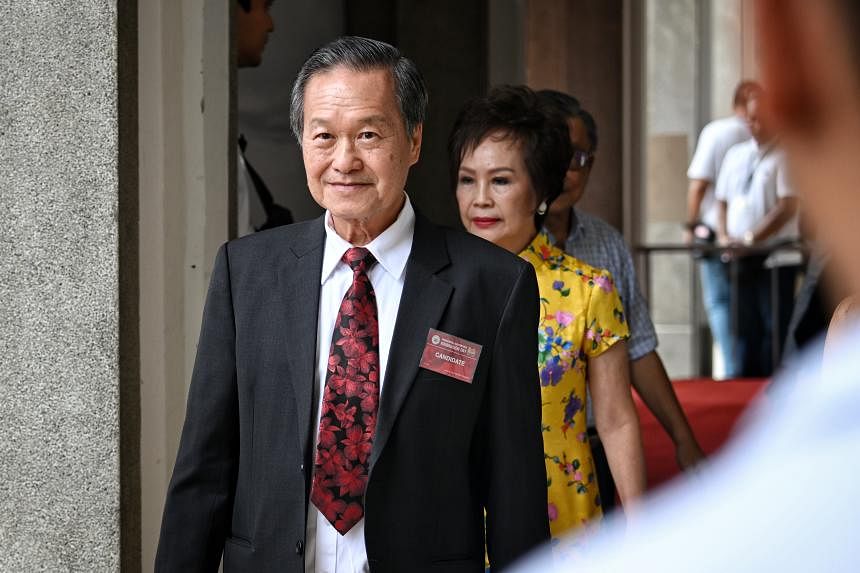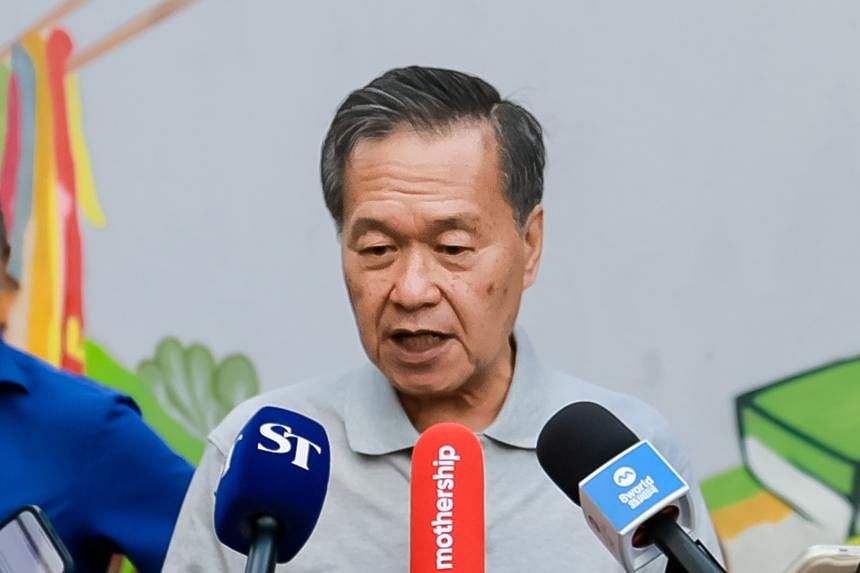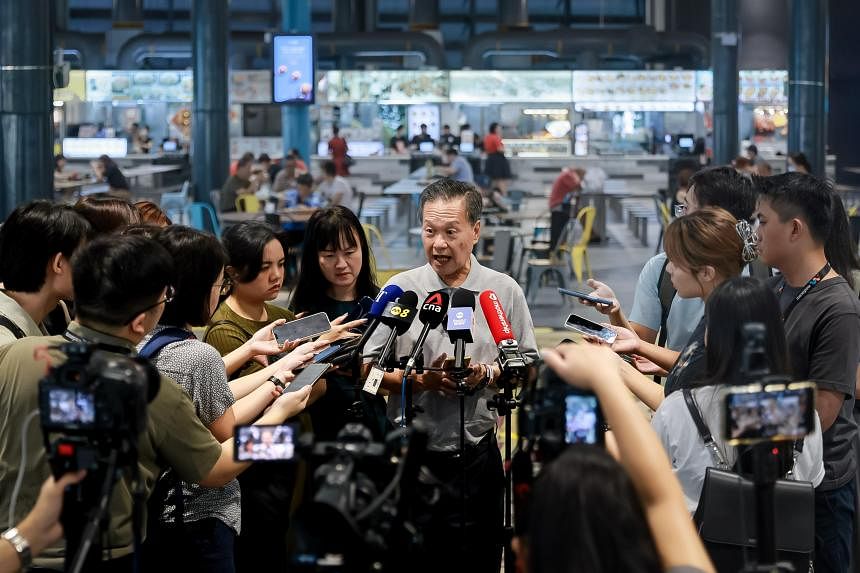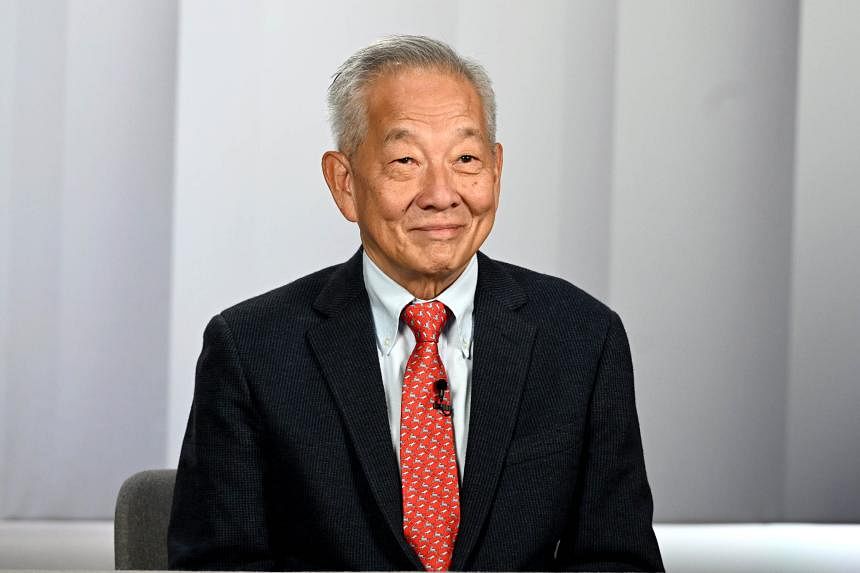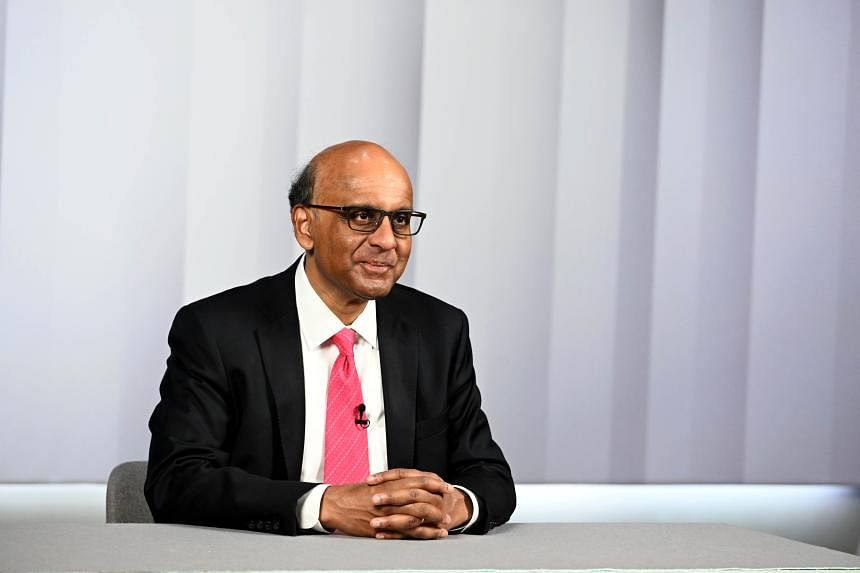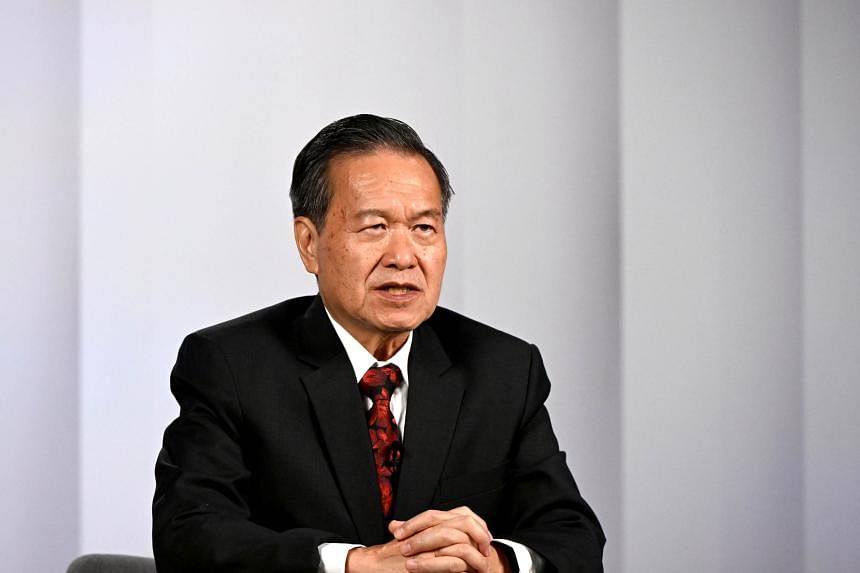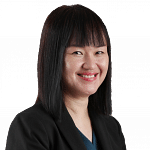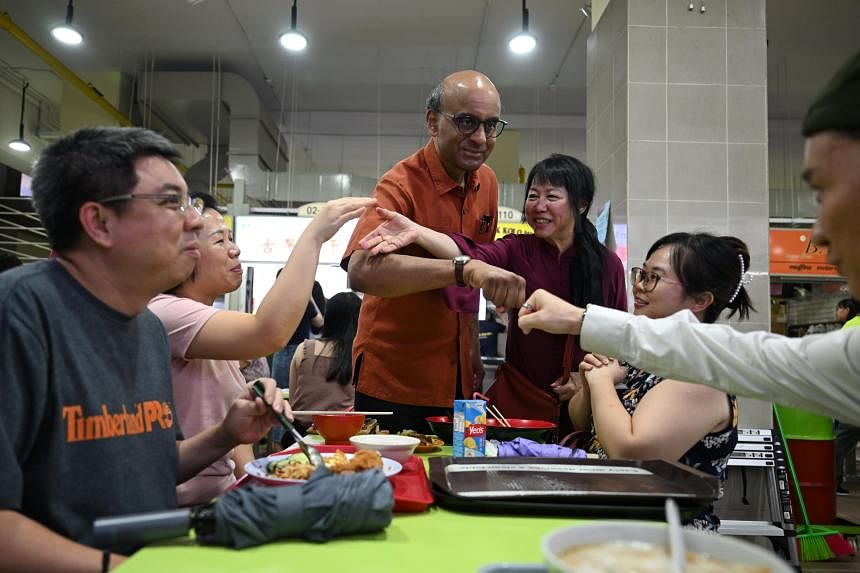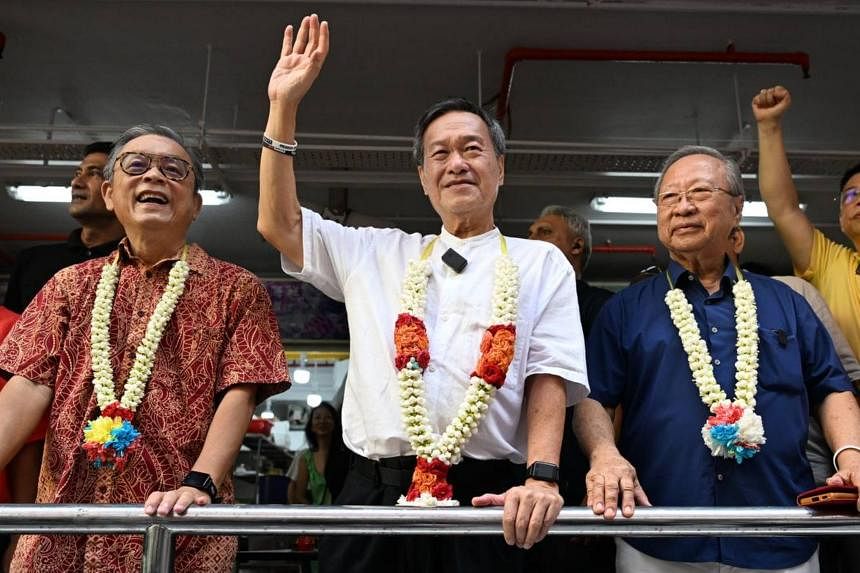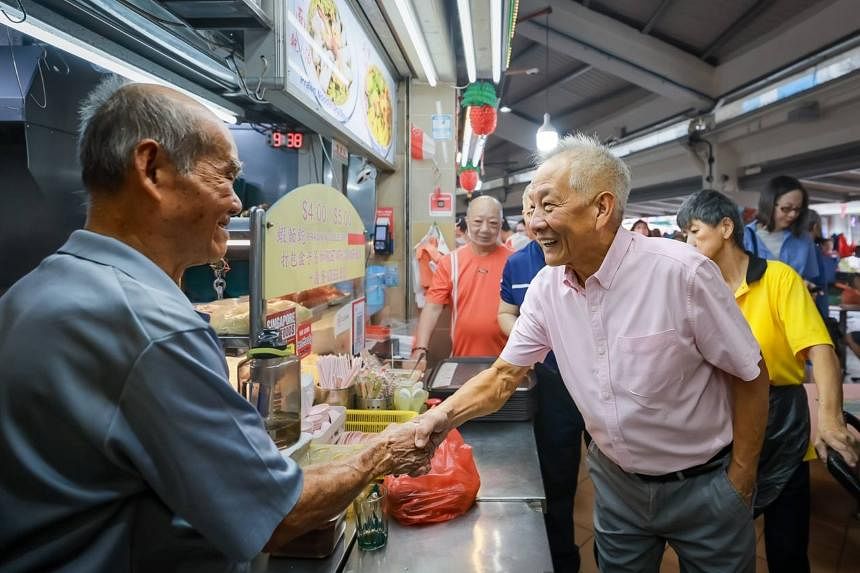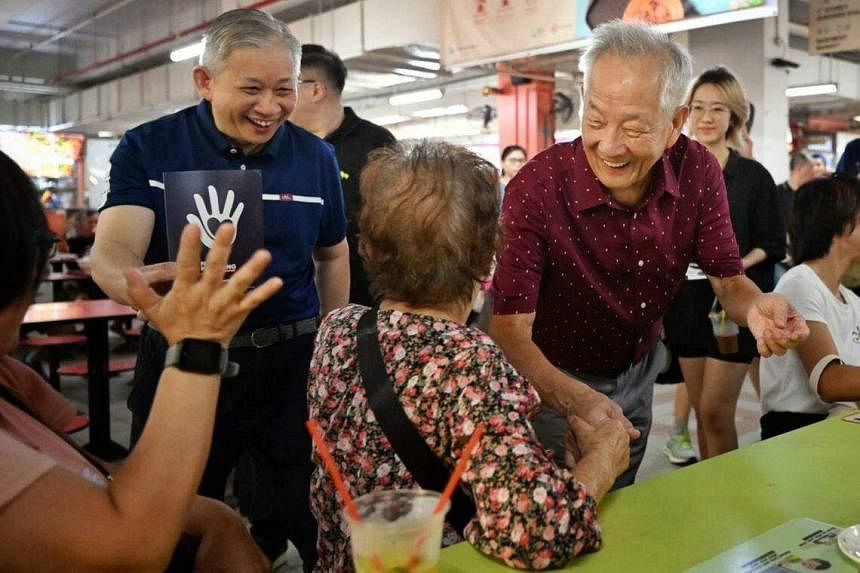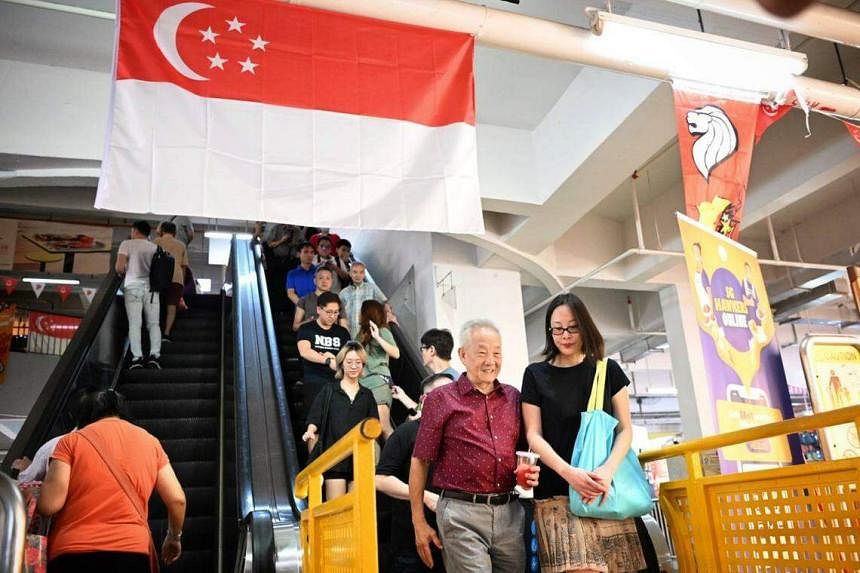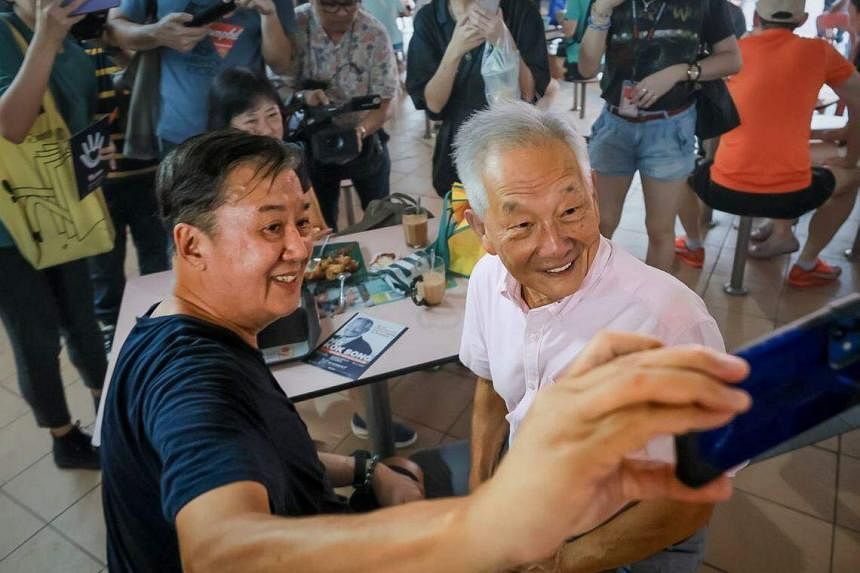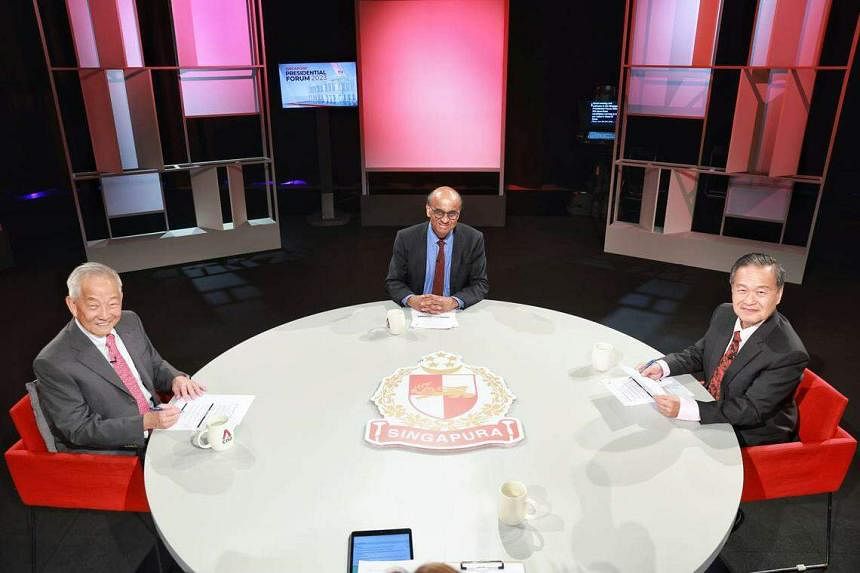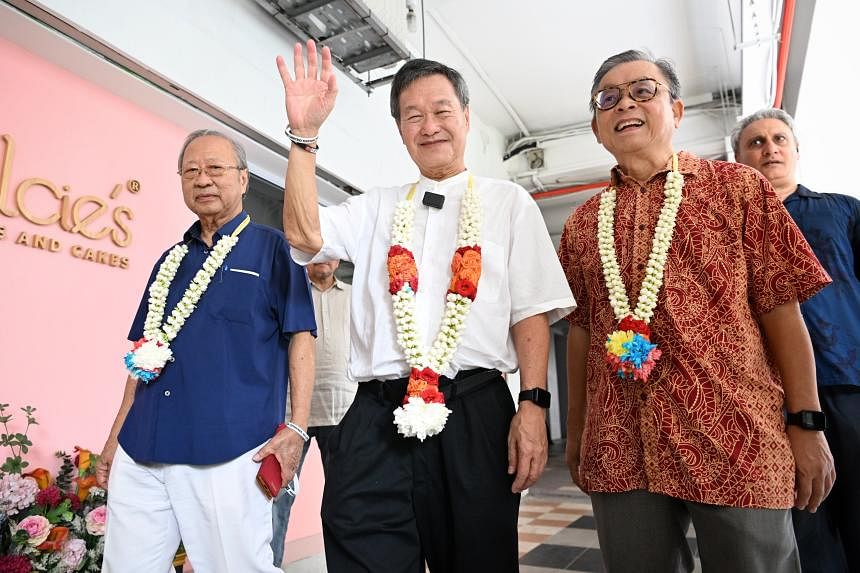Presidential election shaping up into partisan contest, say analysts
Presidential candidate Tan Kin Lian flanked by PSP chairman Tan Cheng Bock (left) and SDP member Tan Jee Say during his walkabout in Chin Swee Road on Aug 27. ST PHOTO: CHONG JUN LIANG
Tham Yuen-C and
Kok Yufeng
Aug 28, 2023
SINGAPORE – The 2023 Presidential Election is shaping up into a partisan contest, with several prominent opposition figures coming out in support of candidate Tan Kin Lian, said political observers and analysts.
This has politicised the election into a contest pitting the opposition against the ruling People’s Action Party (PAP), even though the president is meant to be above the political fray, they added.
Progress Singapore Party (PSP) chairman and founder Tan Cheng Bock on Sunday
endorsed former NTUC Income chief executive Tan Kin Lian, 75, joining others such as Singapore Democratic Party (SDP) member Tan Jee Say and Peoples Voice (PV) chief Lim Tean.
Dr Tan Cheng Bock and Mr Tan Jee Say had turned up at a walkabout to stump for Mr Tan Kin Lian, declaring that they shared a “common vision” for an independent president. The trio had contested the 2011 Presidential Election, which former deputy prime minister Tony Tan won.
The PAP, meanwhile, has not endorsed any candidate. But former senior minister Tharman Shanmugaratnam, 66, is seen as being linked to the ruling party, having just
resigned in July to contest the presidency.
National University of Singapore (NUS) sociologist Tan Ern Ser said the election is “no longer about the qualities and suitability of the three candidates for the role of president, but between two options: the PAP and non-PAP”.
“This shouldn’t be the case, but it has shaped up to be so, especially with the appearance of an opposition slate,” he added.
Other opposition politicians
backing Mr Tan Kin Lian include People’s Power Party chief Goh Meng Seng and former PV candidate Leong Sze Hian.
Singapore Management University (SMU) law don Eugene Tan said the Constitution and the Presidential Elections Act do not prohibit such endorsements, but added that it would not be in keeping with the nature of the presidency as a unifying institution.
“When politicians, regardless of whether they are from the ruling party or the opposition, start to portray that presidency as a political prize to be captured, I think we are severely compromising and undermining what the presidency is all about,” he said. “Effectively, it means the president could become a political player.”
Institute of Policy Studies senior research fellow Gillian Koh noted that Mr Tan Kin Lian has already hinted that if elected, he may nominate Dr Tan Cheng Bock and Mr Tan Jee Say to the Council of Presidential Advisers.
She added that the result of these political associations is that voters will see the presidential election as a proxy for the next general election, and a referendum on the PAP government.
“They might say one thing, but they know that the real political effect is to generate a strong anti-PAP sentiment around the presidential election,” she said.
Elected presidency politicised from the start
Other observers, such as constitutional law expert Kevin Tan, said the presidential elections have been “politicised from day one”.
He pointed to how the PAP had put forward then deputy prime minister Ong Teng Cheong as a candidate in the first presidential election in 1993 and persuaded former accountant-general Chua Kim Yeow to run against Mr Ong, so there was a contest.
In the 2011 presidential race, Mr Tan Jee Say had support from various opposition figures, including then National Solidarity Party politicians Nicole Seah and Steve Chia, as well as Mr Vincent Wijeysingha, Mr Ang Yong Guan and Dr Paul Tambyah, who were all involved with SDP at the time.
NUS associate professor of political science Chong Ja Ian said the presidency may be technically non-partisan, but remains political.
“The role is an elected one, it pertains to state resources, the symbolism of the state, and responsibilities, even if the presidency has curtailed discretion. These qualities make the position political by nature, even if the people running for office and who hold office do not have a formal political party membership,” he said.
He added that it is not surprising that political parties would be tempted to lay out some sort of position and may want to weigh in.
Dr Mustafa Izzuddin, a senior international affairs analyst at Solaris Strategies Singapore, said the polarisation of ground sentiment is being capitalised on, and some voters may treat the presidential election as a general election to show displeasure towards the government of the day.
NUS’ Prof Tan said: “I reckon both the candidates and other politicians, as well as supporters, see the stakes as very high, and they feel strongly about wanting to see their preferred outcome becoming a reality, and they believe that this presidential election offers a good opportunity for this to occur.”
Dr Kevin Tan noted that the ruling party has thrown its weight behind its preferred candidate in earlier presidential elections.
However, SMU’s Associate Professor Tan said that while the PAP had endorsed Mr Ong in the first presidential election, the Government has since come to realise that its support is not ideal, and has not explicitly endorsed any candidate.
He added that while any candidate coming from the Government will always be seen as having some form of tacit endorsement, the PAP has not given Mr Tharman an explicit endorsement in the same way that Dr Tan Cheng Bock has for Mr Tan Kin Lian.
Mr Tharman did not have any current or past politicians on his team of proposers, seconders and assenters, “because he is very conscious that he wants to draw that line, that his political affiliation has ended”, said Prof Tan.
Will Tan Cheng Bock’s support move the needle?
Observers were mixed on whether Dr Tan Cheng Bock’s endorsement would have an impact at the polls.
SMU’s Prof Tan said it is no surprise that presidential hopeful Ng Kok Song, 75,
has come out strongly against it, due to his positioning as the only non-partisan candidate in the race. He said because of Dr Tan’s support, there may be voters who decide to back Mr Tharman instead of Mr Ng come Friday to avoid splitting the pro-establishment vote.
At the other end, Dr Tan’s endorsement has essentially signalled to the anti-establishment segment of the electorate that their support should go to Mr Tan Kin Lian, he added.
Mr Ng, the former GIC chief investment officer, slammed the move by Dr Tan Cheng Bock on Sunday, adding that the opposition party leaders involved with Mr Tan were “dragging the presidential election into gutter politics” and dishonouring the office.
“There’s a danger that (Mr Tan Kin Lian’s) going to be manipulated by those leaders of the opposition parties,” Mr Ng added on Monday.
Prof Tan said he would not be surprised if Dr Tan’s endorsement has little effect.
“For voters who are undecided and have trouble with Mr Tan Kin Lian’s views on a variety of issues, I think Dr Tan Cheng Bock’s endorsement will not shift the needle,” he said, adding that fair-minded voters will find it hard to understand Dr Tan’s backing given the accusations of misogyny and racism from some quarters against Mr Tan Kin Lian.
Dr Tan had stated that he was supporting Mr Tan Kin Lian in his personal capacity.
On Monday, a PSP spokesman said it is not endorsing any candidate in the upcoming election, and that any support by any member for a candidate is in his own personal capacity.
However, NUS’ Prof Tan said it is hard to see Dr Tan endorsing Mr Tan Kin Lian purely as an ordinary voter, given his position as chairman of a political party and the fact that he and Mr Tan Jee Say were seen garlanded and campaigning with the candidate.
Political analyst and Nanyang Technological University associate lecturer Felix Tan said he expects Dr Tan’s endorsement to have some significance, given his sizeable following.
However, it may also complicate things for his supporters, as they may not all feel the same way about Mr Tan Kin Lian as a presidential candidate, he said.
With four days left until Singapore heads to the ballot box, analysts say it is ultimately for the voters to decide which candidate is reasonable and preferable to them.
Dr Chong reckons that the election being politicised is not necessarily good or bad. “It all depends on how the contestation plays out—whether it is above board, even-handed, competitive, and, in the case of elections, voters are able to act upon their choices freely and have those choices matter,” he said.
“It is obviously helpful if voters are fully informed about the responsibilities and limitations of the office they are voting to fill. However, voter education needs to take place consistently and over the long term, rather than in the heat of an election period, where there may be information overload.”
Dr Koh, meanwhile, urged voters to put aside considerations about party politics when electing Singapore’s ninth president, and to leave these considerations for the next general election, which is due by 2025.
She added: “This is a most difficult topic to delve into, but hopefully will be part of our maturation process as a smart electorate.”
